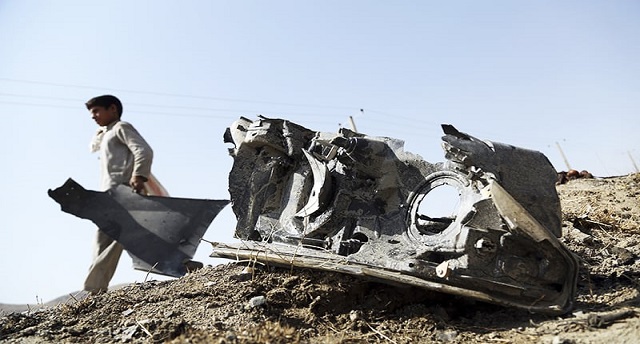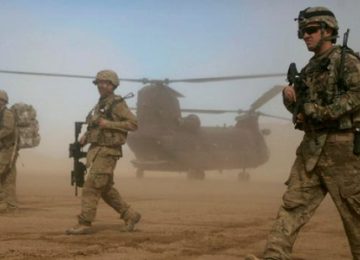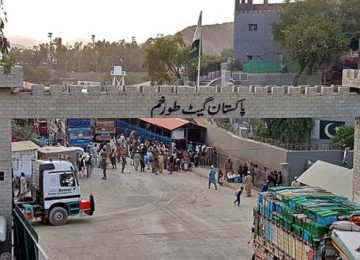July 25, 2019
Afghanistan’s badly stretched police are taking heavy casualties as attempts build to set up peace talks with Taliban militants, prompting a move to pull back from vulnerable outposts across the country.
The United States advisers have for years pushed commanders to abandon isolated checkpoints that serve little purpose beyond showing a presence but which act as a magnet for attacks by mobile Taliban fighters, increasingly armed with night-vision equipment.
Following a change at the top of the interior ministry last year, officials say 6,452 police outposts and checkpoints all over Afghanistan are being assessed as part of efforts to reduce losses and cut the rate of desertion by police who feel abandoned by their commanders.
Abdul Moqim Abdulrahimzai, director general of operations and plans at the interior ministry, said more than 210 police outposts and checkpoints had been closed in 17 provinces and another 200 had been identified for closure.
“These remote outposts did not contribute to security and were setting ducks, a soft target for the Taliban to pick on them,” Abdulrahimzai said.
“Those areas will not be abandoned but will remain under our close surveillance and we will respond to security threats when needed,” he said.
Fawad Aman, deputy spokesman for the defence ministry, said the government was also planning to merge several small, remote army outposts into larger bases.
The government no longer issues detailed casualty figures but officials say around half of the tens of thousands of losses suffered over the years were at isolated checkpoints.
Over the last three years, the 200 outposts identified for closure suffered 5,000 attacks that killed 2,260 police and wounded 3,601, according to an interior ministry document seen by Reuters.
At just one outpost in a remote area of the southern province of Helmand, more than 300 police were killed during dozens of insurgent attacks in the same period.
Afghan President Ashraf Ghani said last year 28,000 police and soldiers had been killed since 2015, with US commanders warning that such losses are unsustainable. US officers estimate that forces operating mainly from checkpoints suffer around double the level of casualties as forces on manoeuvre.
The issue has gained renewed importance as the Taliban negotiate with the US over a timetable for the withdrawal of US troops as a first step towards opening full peace talks with the Afghan government.
At the same time, apparently aiming to strengthen their negotiating position, the Taliban have stepped up attacks on security forces, which have been heavily dependent on US air support and intelligence.
A mixture of institutional inertia, lack of training and a fear of being seen to abandon ground to the Taliban has helped keep hundreds of ineffective checkpoints open, observers say.
Some police commanders also use highway checkpoints to levy illegal tolls from motorists and Abdulrahimzai said a number of checkpoints along the highway connecting the capital Kabul to the strategic southern province of Kandahar had been removed because the police extorted money from truck drivers.
As the pullback continues, officials must persuade the public that it means more than just abandoning ground to the Taliban.
“Since the checkpoints have been removed, the Taliban usually come on the road and stop cars for inspection,” said Mohammad Aref, a taxi driver who travels the Kabul-Kandahar highway every day.
“At least the checkpoints gave us a sense of security. Now there is none.”
Source: DAWN
Disclaimer: Views expressed on this blog are not necessarily endorsed or supported by the Afghan Studies Center and Center for Research and Security Studies, Islamabad.








